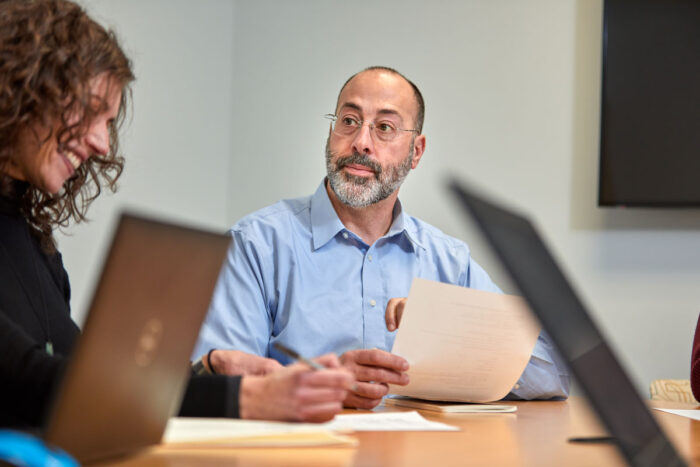
Qualitative data—such as data from interview or focus group studies—has a unique value in understanding health behaviors and traits. It is often used to understand attitudes and preferences, as well as complex and hidden behaviors. Qualitative research has led to deeper understandings of risk factors for HIV, teen pregnancy, and illegal drug use.
When participants are asked to share information about attitudes and behaviors that are sensitive, stigmatized, or illegal, it is crucial that they trust the researchers will protect their information. Understandably, much qualitative research data is rarely shared due to concerns about participant confidentiality, as well as data ownership and the time burden and cost of de-identifying data.

ICTS Investigator James DuBois, DSc, PhD, the Steven J. Bander Professor of Medical Ethics and Professionalism at Washington University School of Medicine in St. Louis, looks to identify and reduce these barriers in his current project, “Sharing Qualitative Research Data: Identifying and Addressing Ethical and Practical Barriers”. In a unique collaboration across ICTS core services, DuBois’ Bioethics Research Center team is working with Washington University’s Institute of Informatics to develop software to support the anonymization of qualitative data. The project aims to create a Qualitative Data Sharing Toolkit, to include this new software and other guidance materials targeted to data repositories, qualitative research journals, qualitative textbook authors and research institutions.
“We want to make it relatively easy to share data in a responsible manner,” commented DuBois. “Not all qualitative data can be shared responsibly. Some of it is just too sensitive and too unique to de-identify. But I think most data can be shared, and we want to make that happen.”
DuBois remains hopeful that the current qualitative data sharing paradigm will change. “Sharing qualitative research data supports transparency in research, provides trainees with access to real and interesting data as they learn coding skills, and enables secondary research in a cost effective manner,” said DuBois. “But it has to be done in an ethical manner, and in a way that does not overly tax those who are willing to deposit data.”
DuBois is active in the ICTS serving as Director of the Bioethics Research Center, a core service of the ICTS and is a member of the ICTS Operations Committee. More information regarding this study can be found on the Bioethics Research Center’s website. Learn more about Dr. DuBois and the Bioethics Research Center in Washington People: James DuBois in The Record.